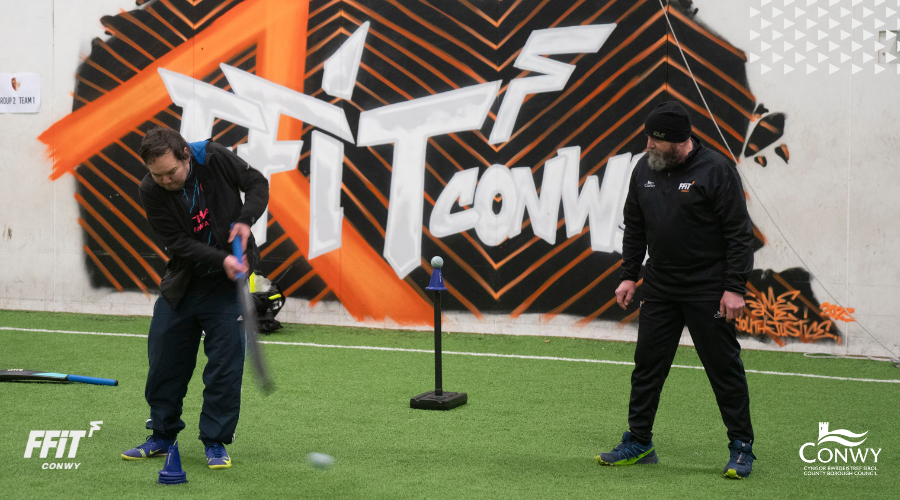Ffit Conwy Activity Inclusion Model
The Ffit Conwy Activity Inclusion Model has been adapted from various models of inclusion to assist local disabled people, and their families, identify the most appropriate outlets within the local area. Finding the most appropriate outlets is extremely important as it will increase the potential of people having a meaningful, positive experience as well as sustaining the activity.
We understand that each individual is unique and therefore a ‘one size fits all’ approach will simply not work when providing, and facilitating, opportunities. By recognising the need for different types of sessions, clubs and services we cannot only signpost people more effectively to existing opportunities, but also ensure that disabled people are an integral part of the planning process for new developments.
To create a truly inclusive Conwy we need to adopt a person centred approach wherever possible and the Ffit Conwy Activity Inclusion Model aims to put each individual at the centre of their own experience. The model does not prescribe activity for anybody but instead provides a range of options for consideration.
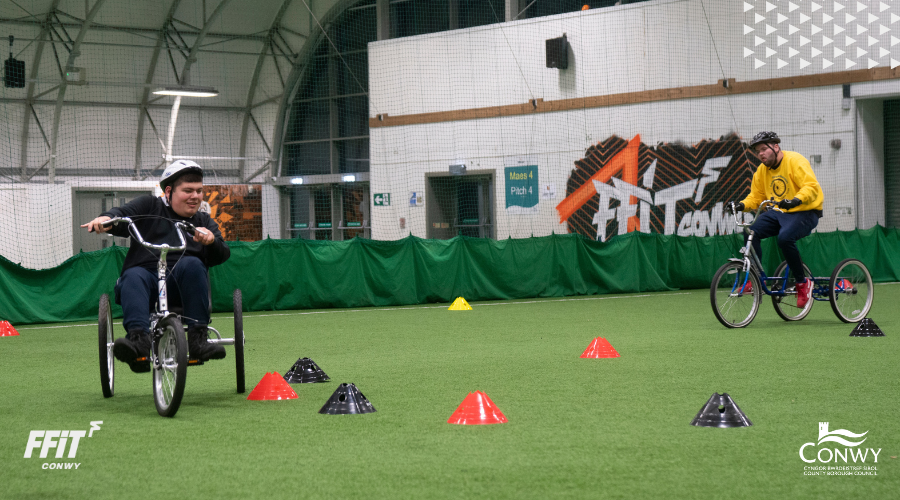
The Ffit Conwy Activity Inclusion Model places the individual at the centre of the process whilst identifying four different activity types. Each type of activity is as valuable as the next, and will always have its own unique characteristics, but by grouping them in this way we maximise the likelihood that disabled people will find an outlet and experience that they will enjoy and benefit from.
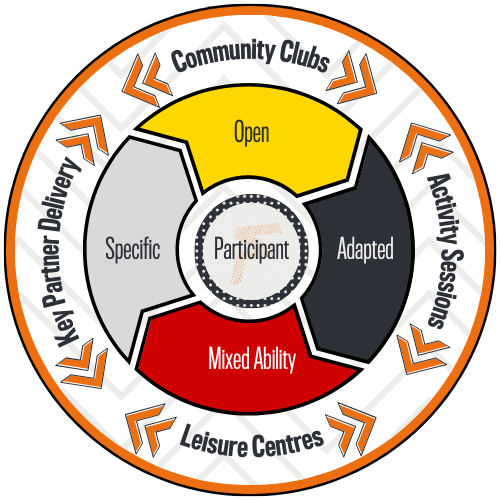
Activity inclusion models are not designed to segregate people, but instead ensure that everybody has an opportunity to engage in meaningful activity. By acknowledging that we need a range of outlets for a range of people we are far more likely to include each impairment group, whether that be intellectual, physical or sensory impairments, as well as a wider range of abilities and those with complex needs.
An individual is not restricted to any one activity type and they may access more than one activity type at any one time. If somebody is new to physical activity or sport they may prefer to start accessing opportunities in one way before progressing to another. The process can be very fluid allowing individuals to access the right environment for them at any given time.
With a clearer way of signposting individuals we are more likely to find what we are looking for sooner.
This model can apply to every organisation that provides physical activity and sport within Conwy, including; volunteer led community clubs, funded activity providers, private organisations, leisure centres, charities, national governing bodies and any other organisation looking to support disabled people lead healthier, more active lifestyles.
In addition to signposting people to activity, this model can be used to assist organisations plan, programme and develop what they offer. If an organisation only offers one activity type via their current services then they are unlikely to be catering for the needs of everybody within our communities. Smaller, volunteer led clubs are also more likely to promote their activity as inclusive if they can identify how their sessions run and who they are designed for.
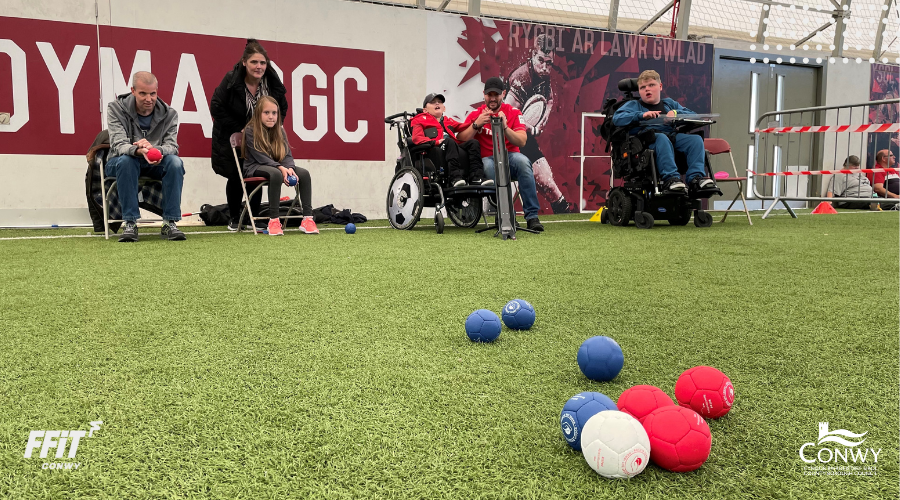
Activity Types
The four activity types within the Ffit Conwy Activity Inclusion Model have been based upon what is already on offer as well as what is going to provide the greatest range.

Sessions are for everybody with little or no adaptations made to the environment, equipment or delivery of the session.
Often designed for non-disabled people but delivered inclusively so that disabled people with minimal to moderate impairments can engage and take part in the same activity at the same time.
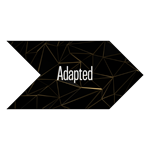
Sessions have been significantly adapted to suit disabled people and particular impairment groups.
The session will be based on a non-disabled sport or activity with similar principles, however look different due to additional or adapted equipment such as sports wheelchairs or non-conventional bicycles. Disabled people and non-disabled people can take part in the activity together.
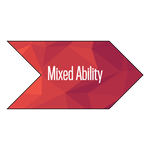
Sessions see participants with a range of abilities take part in the same activity at the same time.
Whilst both disabled and non-disabled people play the same game they may well have adapted rules or equipment for certain individuals to help promote inclusion. Minimally impaired or non-disabled players will often look to support more severely impaired participants with the focus on teamwork.

Sessions are specifically for disabled people, or another specific group, recognising that in some circumstances people will benefit more from an environment with one or more significant changes to the way in which the activity or sport is usually delivered.
Often with a higher coach/volunteer to participant ratio, specific sessions can provide more support and/or structure for more severely impaired people, therefore creating a more meaningful experience.
